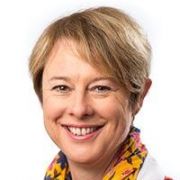In this post, I will share a brief story of my journey since I first joined the Harvard Macy Institute community in 2015. I have heard from other faculty that it can take a few years after attending a Harvard Macy Institute course to establish real change at our local institutions. Certainly, this was true for me, as I embarked upon the challenge to develop a new nursing department at Swinburne University in Melbourne, Australia. There is no doubt that this was not for the faint hearted, as starting a new department in nursing education at a University with no history of healthcare professions education was a real challenge! We are now at the end of our first year of our undergraduate nursing program with plans to move into the postgraduate space within the next three years! So far, all signs indicate that this has been a very successful process as our students and industry partners have provided us with really positive evaluations. I believe there have been a number of ‘secrets to our successes’, and I will spotlight three significant ones in this post:
1. My first ‘secret’ has been maintaining my affiliation with the Harvard Macy Institute community. In 2015 I was initially exposed to the HMI community when I completed the ‘Program for Educators in Health Professions.’ I have continued to return to this course in subsequent years as visiting faculty. In 2016 I also took the ‘Leading Innovations in Health Care & Education’ course which further expanded my knowledge of health professions education within the international context. There are many pearls of wisdom that have influenced the curriculum design and development of the new department, such as cognitive learning theory [would hyperlink] and ’Kolb’s experiential learning theory.’ We are also developing a program evaluation process to ensure our healthcare curriculums are evaluated by all key stakeholders and are considering the use of a logic model. My affiliations with the Harvard Macy Institute continue to ensure I have like-minded educators to bounce ideas off, gather new innovations and then in a safe environment discuss the challenges and failures while I develop this new team and curricula.
2. My second ‘secret’ has been to develop shared understandings with colleagues and implement these changes slowly. Finding champions who understand and are committed to health professions education and brave enough to experiment and innovate can be challenging! Dr. Loretta Garvey - one of my colleagues on my new team - has also taken several Harvard Macy Institute courses and continues to be actively involved in the community. This has allowed both of us to be “wet dogs” – an analogy we learned from course faculty Dr. Bob Kegan! We have been able to share our healthcare pearls of wisdom across our new, albeit growing team of academic healthcare educators.
3. My third ‘secret’ has been the building of a great team. When I took the leaders course the third journal club introduced a reading by Jim Collins: ‘Good to Great in the Social Sectors.’ In this reading we discussed the concept of getting “the right people on the bus and the wrong ones off the bus” and not compromising but expecting great and not just good out of a team. I now take this into account when I am recruiting and take my time to get the right people on the bus and into the right seats. This is by no means easy and has resulted in some people choosing to exit the bus. I feel that this was a hard but valuable learning for me which we debated at length in that third journal club back in 2016. I refer to my team as an ensemble, which represents a whole playing in harmony with different people being given the opportunity to be soloists at different times. Working in functional teams (ensembles) is fundamentally important to healthcare and this also enables co-creation and the opportunity for different individuals at different times to be the star. I have borrowed these concepts from the book ‘Yes And…’ by Leonard & Yorton, to which I was introduced by a Harvard Macy Institute colleague! Building a great team will not be something that really ever ends and people will always be getting on and off the bus, but I intend to always aim for a great albeit changing ensemble.
My advice to developing new teams, programs or projects is to act with integrity even though this can be challenging at times, stick to your vision once you have clearly identified it, build an ensemble with the right people on the bus in the right seats, and always be brave enough to innovate. Finally, make the most of the Harvard Macy Institute opportunities for networking with honest debates and a genuine commitment to improve health professions education. Each time I attend the Harvard Macy Institute courses I come away with a list of books I want to read, some that over the last 4 years have had a real impact on my career development. These include:
WHAT ABOUT YOU? What have you gained from taking a Harvard Macy Course that has changed your professional outlook? How has the Harvard Macy Institute changed your career? Join the conversation by commenting below!
Did you know that the Harvard Macy Institute Community Blog has had more than 150 posts? Previous posts included interviews with Harvard Macy Institute faculty including Victoria Brazil, Eric Holmboe, and Louis Pangaro.
Georgina Anne Parkes Willetts

Georgina Willetts, PhD, RN, RM, FACN, CMgr FIML (Educators, ’15; Leaders ‘16) is a Registered Nurse and health professions educator and researcher. Georgina currently holds a position as Associate Professor and Head of Discipline & Course Director in Nursing in the Department of Health Professions at Swinburne University of Technology. Georgina’s areas of professional interest include professional identities in healthcare, interprofessional education, and medical/surgical patient centered care. Georgina can be followed on Twitter, LinkedIn, or via email gwilletts@swin.edu.au

